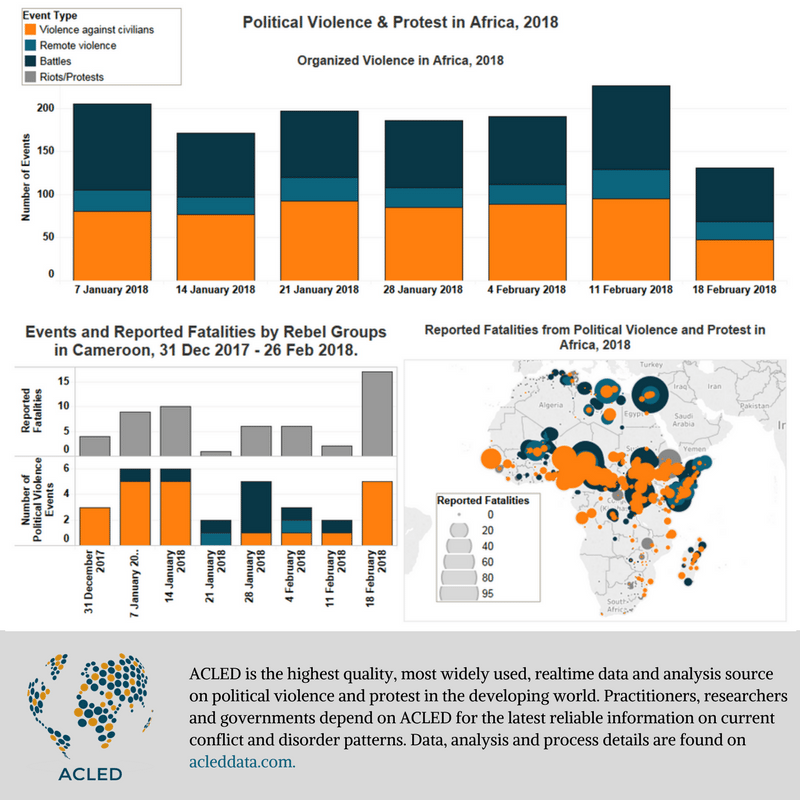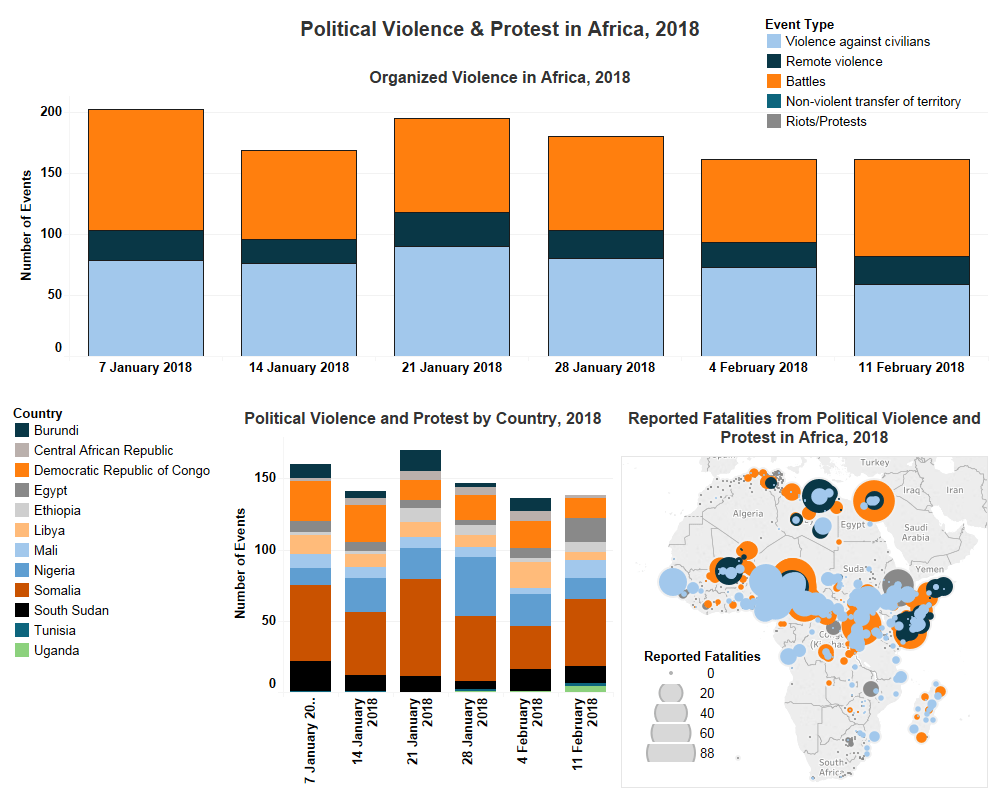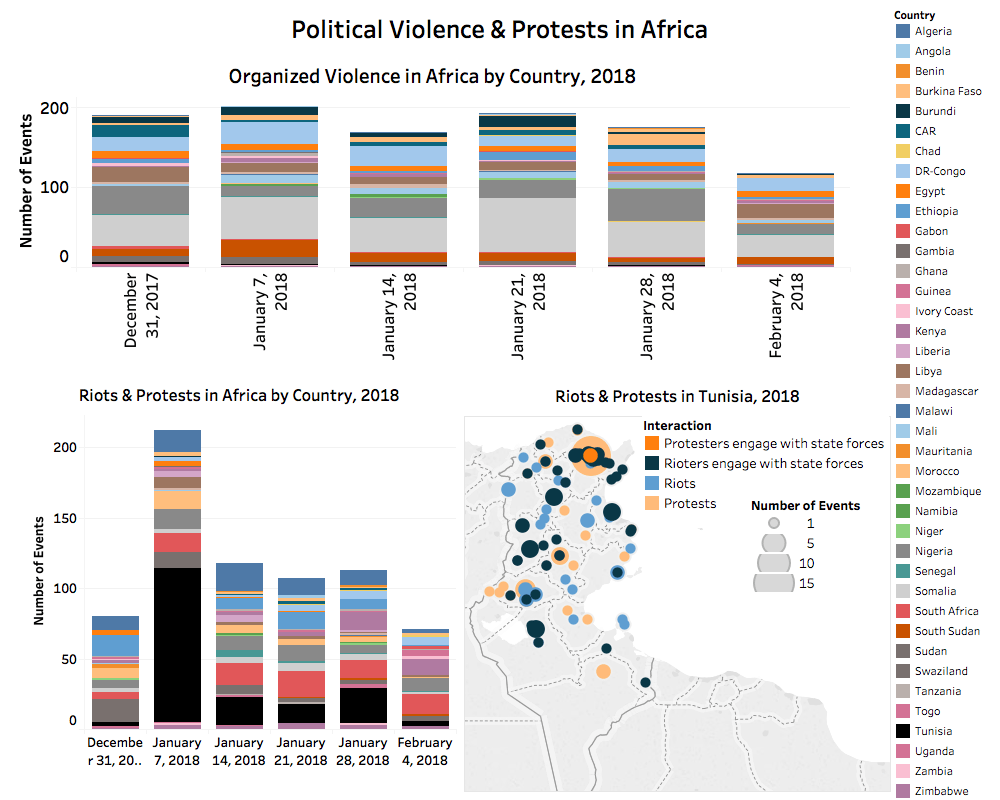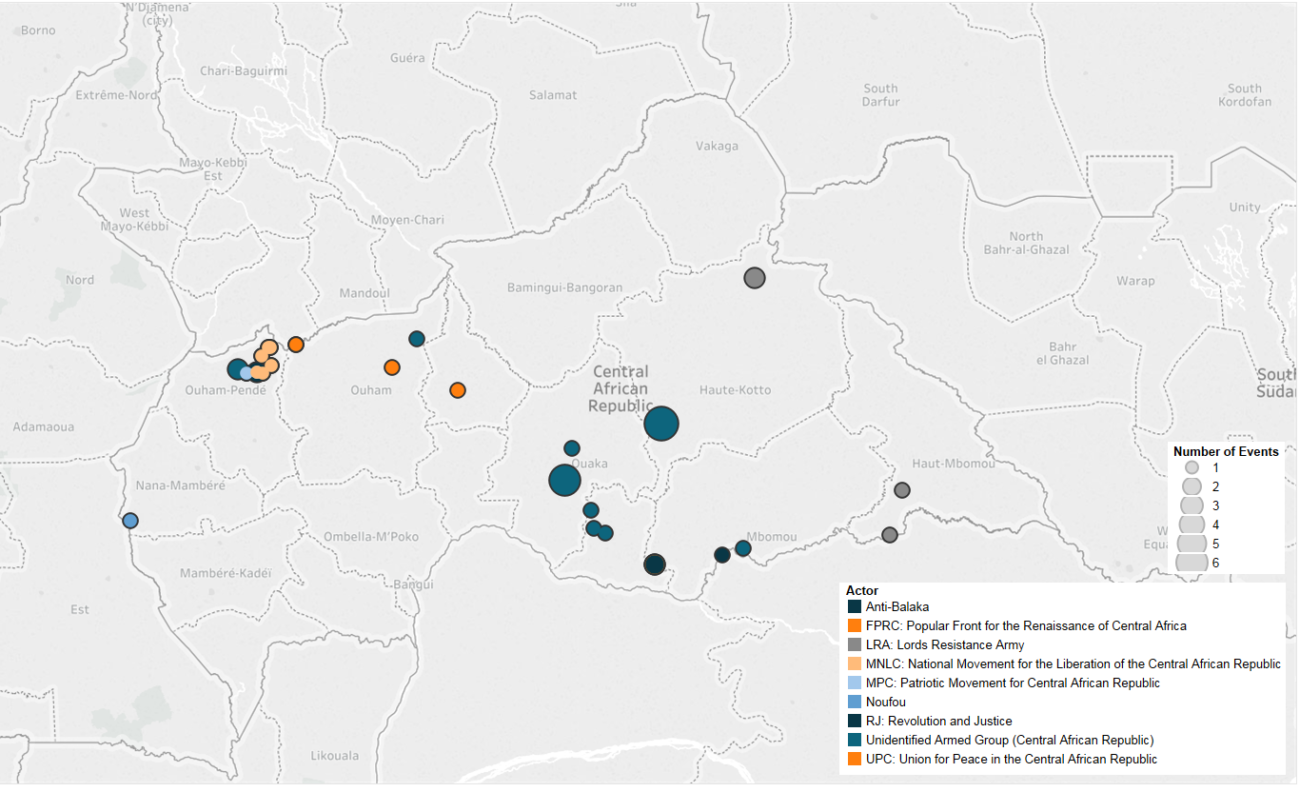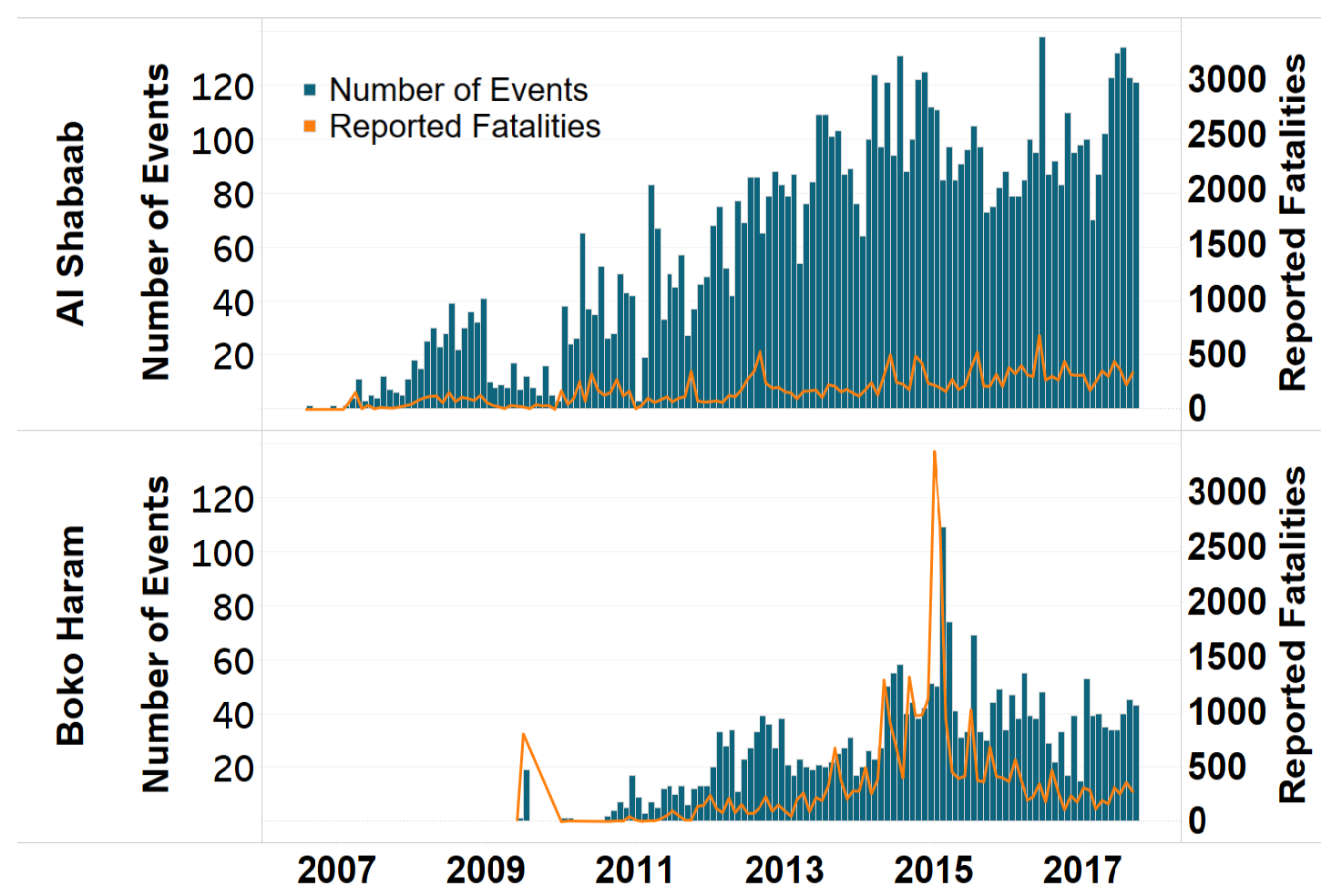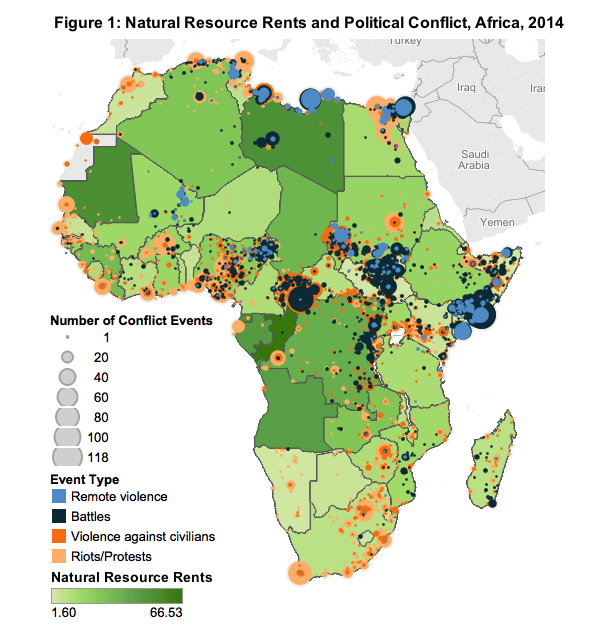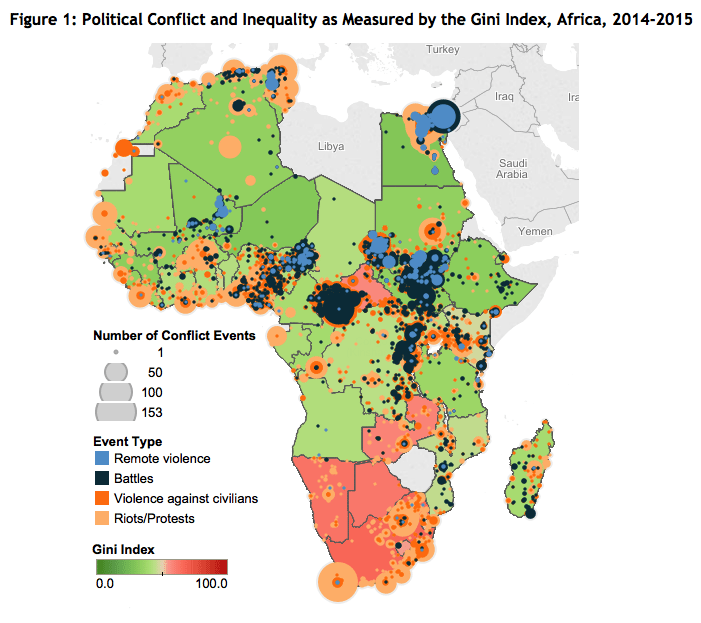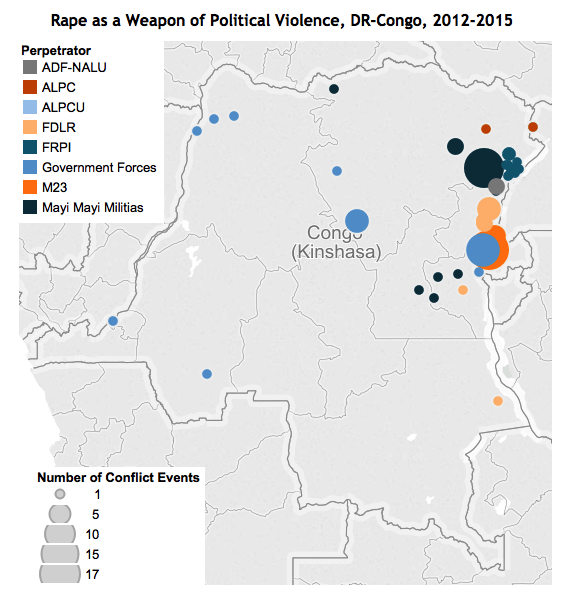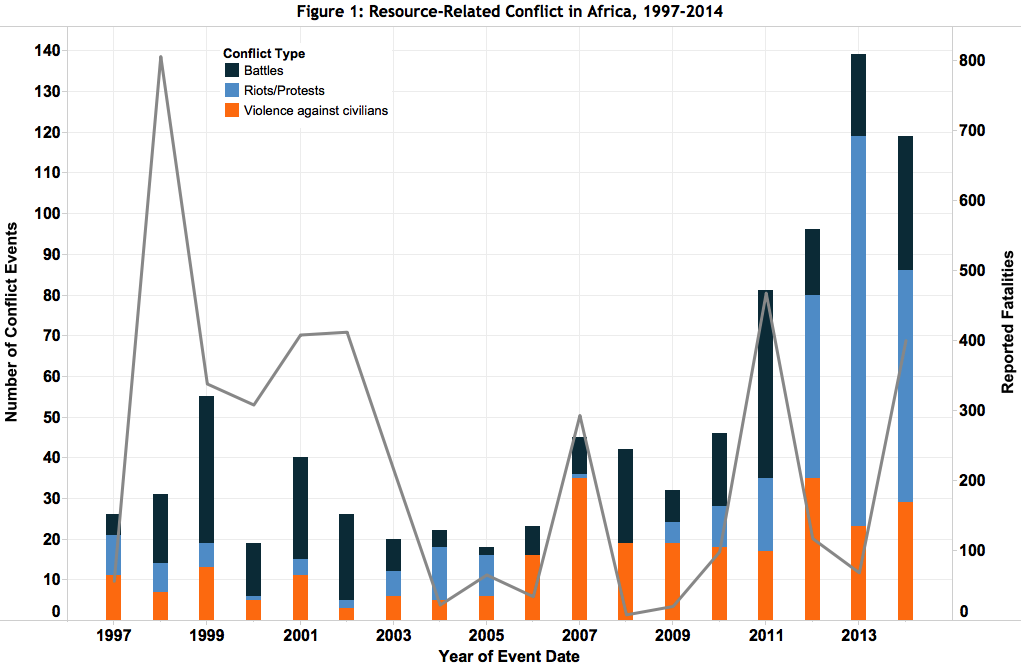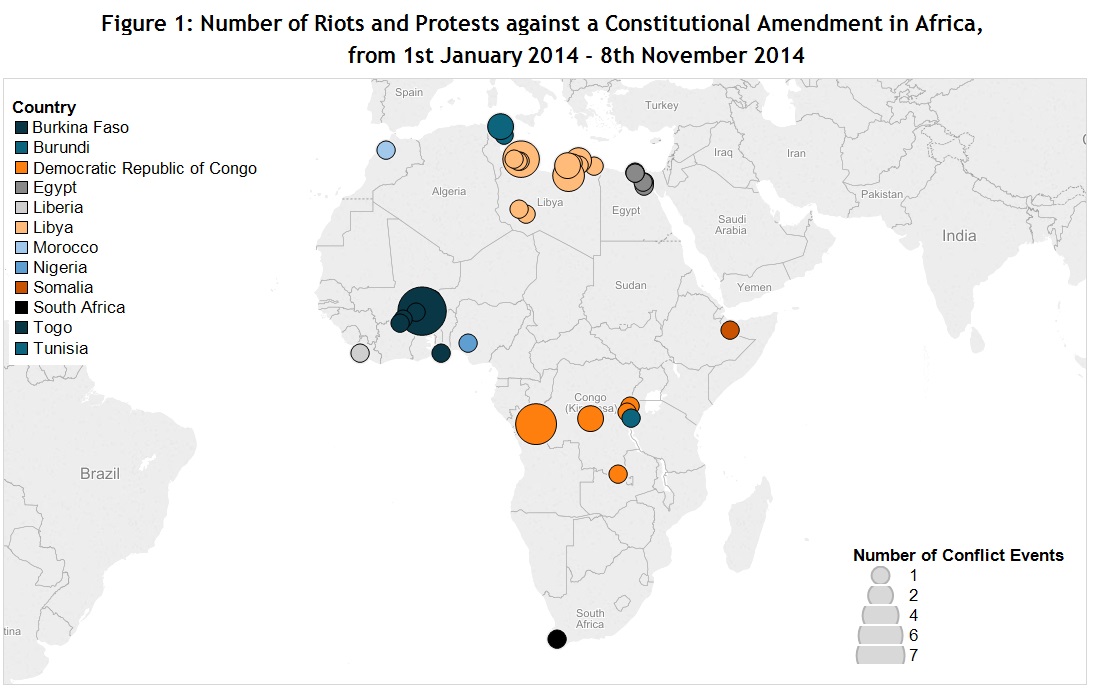Regional Overview – Africa 26 February 2018
26 February 2018
A drop in political violence and protest was recorded in the normally active countries of Africa last week, including Nigeria, Somalia and the Democratic Republic of Congo. Proportionally, battles between armed groups increased compared to the week beginning 11 February. Violence against civilians experienced a modest decrease. Ethiopia maintained a steady rate of protests and…
- Africa
- Analysis
- Civilians At Risk
- Current Hotspots
- Remote Violence
- Rioting And Protests
- Violence Against Civilians
Regional Overview – Africa 19 February 2018
19 February 2018
The number of distinct acts of political violence and protest across Africa remained stable last week. Yet some significant developments include: an increase in the number and intensity of clashes recorded in Egypt, Mali and Somalia and the resignation of President Zuma of South Africa and Prime Minister Desalegn of Ethiopia. Attacks decreased in Cameroon…
Read MoreRegional Overview – Africa 12 February 2018
13 February 2018
Conflict and protest across Africa dropped slightly from the 4th-10th of February, compared to the previous week. This drop-off in activity is largely owing to a downward trend in protest, which declined from the previous week; and fewer attacks by Imbonerakure in Burundi over the last two weeks. Particularly noteworthy is the reduction in anti-austerity…
Read MoreRegional Overview – Africa 5 February 2018
9 February 2018
Across Africa in January 2018, political violence and protest levels rebounded from the lull in December 2017. This regional pattern is predominantly driven by a 38.5% increase in protest levels, where regional coordination between movements is provoking tougher government responses in anti-TPLF protests in Ethiopia, as well as in Tunisia and South Africa. Political violence-related…
Read MoreAl Shabaab and Boko Haram: Patterns of Violence
9 October 2017
Which group is the most violent in Africa? A recent report exploring Africa’s active militant Islamic groups aimed to tackle this question. The report, produced by the Africa Center for Strategic Studies (ACSS), argued that Somalia’s Al Shabaab has eclipsed Nigeria’s Boko Haram, to become “Africa’s deadliest group”. The claim was supported with data drawn…
- Africa
- Al Shabaab
- Analysis
- Boko Haram
- Islamic State
- Political Stability
- Unidentified Armed Groups
- Violence Against Civilians
Sources of Income and Political Conflict
5 November 2015
Strong state capacity is difficult to attain in low-income countries where the state lacks access to resources to aid in effectively implementing policies. As a result, incomes are often used as a proxy measurement to determine the strength of state capacity, and states with lower incomes experience some of the highest levels of conflict (see:…
- Africa
- Aid
- Analysis
- Civilians At Risk
- Conflict Monitoring
- Current Hotspots
- Data Management
- FDI
- Political Stability
- Remote Violence
- Resources
- Rioting And Protests
- Violence Against Civilians
The Effect of Inequality on Conflict in Africa
4 September 2015
Many have noted inequality as fuel for conflict (see review in Lichbach, 1989). It can serve to exacerbate grievances amongst those who have less-than within unequal contexts, which can in turn serve as a mobilizing factor in fueling violence (Stewart, 2008). Alternatively, it can make the ‘prize’ of conflict larger – within the most unequal…
- Africa
- Civilians At Risk
- Current Hotspots
- Inequality
- Poverty
- Remote Violence
- Rioting And Protests
- Violence Against Civilians
Rape as a Weapon of Political Violence, Part 2: Where, When, and by Whom is This Tactic Used?
25 February 2015
Sexual violence (e.g. rape) is a conscious strategy frequently employed by armed groups to torture and humiliate opponents, terrify individuals, destroy societies though inciting flight from a territory, and to reaffirm aggression and brutality, specifically through an expression of domination (Bastick et al., 2007; UN, 2015). In order to torture opponents, sexual violence can be…
- Africa
- Civilians At Risk
- Current Hotspots
- Ethnic Militias
- Focus On Militias
- Gender-Based Violence
- Inequality
- Local-Level Violence
- Political Stability
- Unidentified Armed Groups
- Vigilante Militias
- Violence Against Civilians
Resource-Related Conflict in Africa
19 November 2014
Natural resource extraction by mining (including oil, diamonds, copper, and cobalt) has tremendous positive economic potential for states. However, these resources can also do more harm than good if used towards ulterior motives including corruption, the unequal distribution of wealth, and to fuel violence. Valuable resources can both fuel violence through competition for territorial control,…
- Africa
- Civilians At Risk
- Local-Level Violence
- Political Stability
- Resources
- Rioting And Protests
- Violence Against Civilians
Anti-Government Protests and Regime Breakdown: Conflict Dynamics in Transitional States
12 November 2014
“Authoritarian regimes…breakdown in systematically different ways, and they also affect post-transition outcomes” Geddes (1999: 6) The recent civil disobedience activity in Burkina Faso to oust President Blaise Compaore, following an attempt to extend his 27-year long term (BBC, 30 October 2014) highlights the success of civil society movements in mobilising for regime change. Riots and…
- Africa
- Boko Haram
- Civilians At Risk
- Current Hotspots
- Focus On Militias
- Political Stability
- Rioting And Protests


